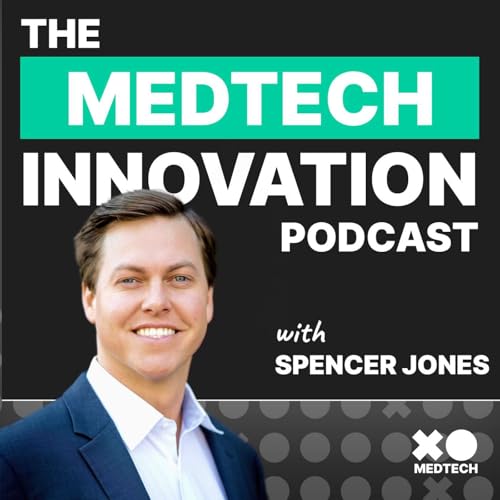I'm joined by Natalie Freels, CEO at InsightHealth Consulting, as we explore how data-driven market intelligence is revolutionizing medtech commercialization strategies and transforming how innovative companies bring breakthrough technologies to market.
The Hidden Truth About Market Research in Medtech
→ Traditional market research methods are failing medtech startups because they rely on outdated physician survey data that doesn't reflect real-world adoption patterns
→ Most medtech companies waste 40% of their market research budget on generic industry reports instead of targeted, actionable intelligence specific to their device category
Cracking the Code on Physician Adoption Behavior
→ Physicians don't adopt new technologies based on clinical evidence alone - peer influence networks and financial incentives drive 70% of adoption decisions
→ The "early adopter" physicians in medtech aren't the ones you think - they're typically mid-career specialists with strong hospital relationships, not academic leaders
→ Geographic clustering analysis reveals that successful medtech launches spread through specific hospital systems and regions in predictable patterns
The Data Sources Big Medtech Doesn't Want You to Know About
→ Payor claims databases contain hidden goldmines of adoption data that small medtech companies can access for under $10K annually
→ Social media sentiment analysis of physician communities provides earlier signals than traditional market research at a fraction of the cost
Why Most Medtech Market Strategies Fail Before Launch
→ 80% of medtech companies enter markets without understanding the reimbursement landscape complexity, leading to 2-year delays in meaningful revenue
→ Total addressable market calculations are typically inflated because companies don't account for adoption curve realities and competitive displacement
→ The biggest market entry failures happen when companies target the wrong customer segment first - going after academic medical centers instead of mid sized and community hospitals
Best Quotes:
"Traditional market research in medtech is like driving while looking in the rearview mirror - you're making decisions based on where the market was, not where it's going."
"The medtech companies that will survive the next decade are the ones that treat market intelligence as a core competency, not an outsourced afterthought."
"Real-time competitive intelligence isn't just about knowing what your competitors are doing - it's about predicting what they're going to do before they know it themselves."
"Most medtech startups fail not because they build bad products, but because they fundamentally misunderstand how their markets actually work."
Want more insights on medtech innovation? Subscribe to the channel so you don't miss hot takes and insider tactics from the trenches of medtech startups.
🤝 Join the #1 network for medtech innovators on the internet. Become a member to accelerate your journey, collaborate and build valuable ventures. Join for free using this link.
Find the perfect vendors for your medtech project for free at MedtechVendors - https://www.medtechvendors.com/
📈 My FREE 5-day course for Medtech Innovators to create successful ventures: https://xomedtech.com/free-course
FIND SPENCER JONES ON SOCIAL
Spencer's LinkedIn
XO Medtech LinkedIn
FIND NATALIE SPENCER ON SOCIAL
Natalie's LinkedIn Profile
InsightHealth Consulting Website
Episode Timestamps:
00:00 - Introduction to market intelligence in medtech
03:45 - Why traditional market research fails medtech startups
08:12 - The real drivers of physician technology adoption
14:30 - Revenue intelligence strategies that increase win rates
19:55 - Hidden data sources for competitive advantage
25:20 - Common market entry mistakes and how to avoid them
31:10 - Advanced competitive intelligence tactics
37:45 - Building internal market intelligence capabilities
43:20 - AI and predictive analytics in medtech market research
48:15 - Future trends in medtech competitive intelligence
52:30 - Key takeaways and action items for medtech innovators
55:45 - Closing thoughts and contact information
 1 hr and 15 mins
1 hr and 15 mins 1 hr and 3 mins
1 hr and 3 mins 1 hr and 30 mins
1 hr and 30 mins Jul 23 20251 hr and 24 mins
Jul 23 20251 hr and 24 mins Jul 9 202535 mins
Jul 9 202535 mins Jul 2 202549 mins
Jul 2 202549 mins Jun 24 202548 mins
Jun 24 202548 mins Jun 17 202553 mins
Jun 17 202553 mins
